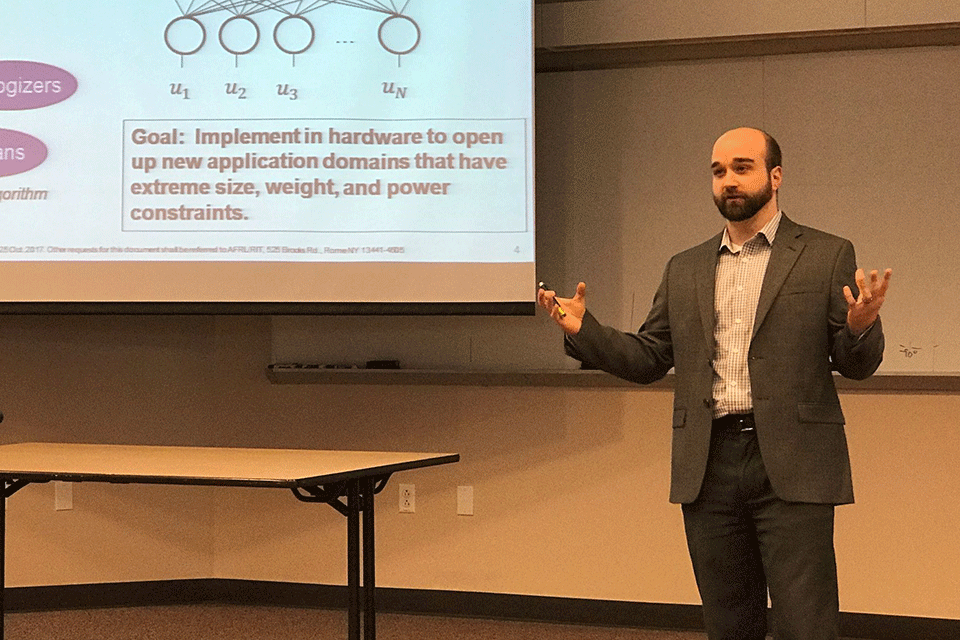
Cory Merkel
Associate Professor, Computer Engineering
Cory Merkel
Associate Professor, Computer Engineering
Education
BS, MS, Ph.D., Rochester Institute of Technology
Bio
Dr. Cory Merkel joined the RIT computer engineering department in 2018. He earned his BS and MS degrees in computer engineering (2011) and a Ph.D. in microsystems engineering (2015), all from RIT. From 2016 to 2018, Dr. Merkel was a research electronics engineer with the Information Directorate, Air Force Research Lab. His current research focuses on mapping of AI algorithms, primarily artificial neural networks, to mixed-signal hardware and the design of brain-inspired computing systems using emerging technologies such as memristors. He has published his work in several peer-reviewed conferences, journals, and books, and is also engaged in a number of STEM outreach activities. For more information, see Dr. Merkel’s research website www.rit.edu/brainlab.
Select Scholarship
Currently Teaching
In the News
-
May 30, 2025

Quantum Machine Learning Predicts Suitability of HHL Algorithm for Equations
Quantum Zeitgeist features research by Sonia Lopez Alarcon and Cory Merkel, associate professors in RIT's Department of Computer Engineering, and Mark Danza '25 MS (computer engineering).
-
January 22, 2025

New research shows AI systems are getting closer to processing information like humans
RIT engineering professor Cory Merkel was one of more than a dozen researchers in neuromorphic computing contributing findings published on Jan. 22 in Nature.
-
February 19, 2024

Computer engineering faculty member joins national initiative on neuromorphic computing
Cory Merkel, assistant professor of computer engineering at RIT, will represent the university as one of five collegiate partners in the new Center of Neuromorphic Computing under Extreme Environments, also referred to as CONCRETE.
Featured Work
Making AI less artificial and more intelligent
Cory Merkel
Dr. Cory Merkel’s lab—Brain Lab—is exploring cross-disciplinary solutions to improve the agility, energy efficiency, and trustworthiness of AI systems.



